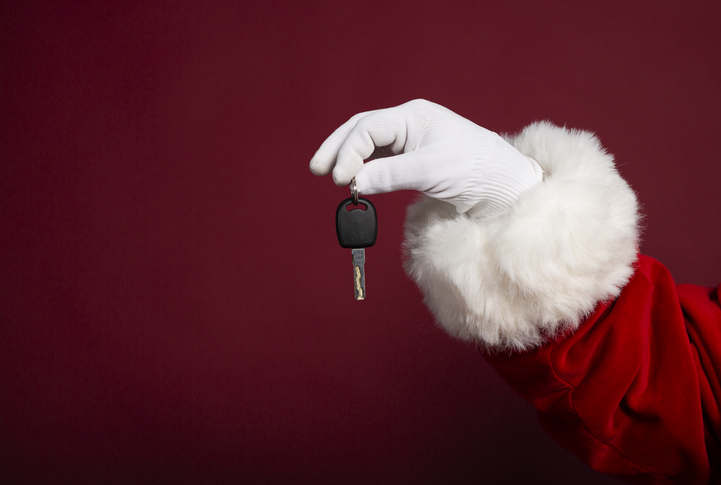DUI CheckPoints – Pittsburgh, PA
Information and What You Should Know if You Are Stopped at a DUI Checkpoint
 The holidays are here again – time for people to get together, celebrate, and drink their care away! It’s the time for merriment, although holidays can also be stressful.
The holidays are here again – time for people to get together, celebrate, and drink their care away! It’s the time for merriment, although holidays can also be stressful.
One added stressor is that festivities could turn into a nightmare if you are pulled over for DUI, or worse, in an accident with a drunk driver. There are few greater buzz kills than a DUI arrest or car accident with injuries.
Most people don’t have to worry if they do not plan to drink and drive. But even a couple of beers can be the cause of a DUI charge, especially if you happen to pass through a DUI checkpoint while coming back from the company holiday party, restaurant, or a family gathering.
A DUI checkpoint is a roadblock that allows police to systematically pull over cars to deter driving under the influence of alcohol and/or drugs.
DUI checkpoints are perfectly legal and constitutional in Pennsylvania and if a person is charged with DUI from being pulled over at a DUI checkpoint, it can be very difficult (although not impossible) to prove innocence or fight the charges.
Where are DUI Checkpoints in Pittsburgh and Allegheny County?
In order for a DUI Checkpoint to be constitutional in Pennsylvania, the police are required by law to give adequate warning of a checkpoint. This could mean putting up signs and advertising in the media or newspaper.
Once the location has been advertised, the police cannot move the location without again giving the public notice.
A few common places for a DUI checkpoint in Allegheny County include: near the South Side or the Strip District, off the exit for the Sewickley bridge, or near Etna on Route 8.
There are also mapping apps, like Waze and Relaid, where users can pin DUI checkpoints and label them, so you can also see possible roadblocks and DUI checkpoints, as well as traffic updates.
Can I Turn Around if I See a DUI Checkpoint Ahead?
If you see signs for a DUI ahead, you do have the option to turn off to another street before you reach it and take a different route. Purposely avoiding a DUI checkpoint is not a reason to pull you over. However, making a U-turn in the middle of the street could be a traffic violation, so be wary.
What Typically Happens at a DUI Checkpoint?
Unlike being pulled over on suspicion of DUI – like swerving, speeding, or recklessness – the police do not need reasonable suspicion to pull someone over at a DUI checkpoint.
That said, they do not pull over cars at random either – they have strict guidelines to follow, such as stopping every fifth vehicle. These rules are decided upon ahead of time and cannot be changed during the course of the checkpoint. This is to enforce that they cannot stop on a whim by race, religion, sex, vehicle type, or if they simply don’t like the way someone looks.
Of the vehicles they do pull over, they are free to question the drivers or ask them to take a sobriety test as they enter through the roadblock.
The stops are supposed to be minimal and non-invasive. The police do not have a right to a physical search without probable cause.
They may start by asking simple questions such as where you were tonight, where you are headed now and if you had anything to drink. Any of your answers could be used in court as probable cause.
Law enforcement officers look for common behavioral signs of impairment at a DUI Checkpoint, such as:
- The smell of alcohol;
- A rosy-colored or flushed face;
- Eyes that may be bloodshot, watery, or too relaxed;
- Slurred speech;
- Aggressive or defensive behavior;
- Fatigue or slowness;
- Clumsiness;
- Dilated pupils, and;
- Excessive sweating.
If after noticing any of these types of behaviors, the police believe you may be under the influence, they could ask you to perform a field sobriety test or request a breathalyzer.
You are not required by law to comply with the field sobriety test or the breathalyzer that an officer may have on hand before an arrest.
If you refuse the breathalyzer, however, this may give them probable cause to arrest you, take you to the police station, and require a blood or breath test that is used as evidence. This test can determine your blood alcohol level and whether you are under the influence of drugs. Of course, you do not have to comply with this test either, but if you don’t, it is an automatic license suspension, and, if convicted, you face the most severe penalties of DUI under the highest tier, including a $5,000 fine and jail time.
Can I Get Charged with Drugs at a DUI Checkpoint?
Yes.
The DUI stop is meant to be brief and non-invasive, but if police officers find probable cause that you may be under the influence of drugs, they may conduct a physical search. They may also place you under arrest and request you take a blood test.
If officers can smell marijuana or weed in your vehicle, they are not permitted to conduct a search from the smell of marijuana alone. However, if other suspected behavior is evident to police officers, they may still legally conduct a search when they also smell marijuana.
Remember, even if you are a medical marijuana card holder in Pennsylvania, it is still illegal for you to drive under the influence of marijuana. And if you are asked to take a blood test, your results could show you have cannabis in your system, even if you were not smoking at the time of driving. This is a contradiction, but as it currently stands, you could be charged with DUI drugs if you are found to have marijuana in your system, even trace amounts.
Best ways to avoid a DUI arrest?
Don’t drink and drive! Don’t do drugs and drive either! An Uber ride costs a lot less than a DUI conviction.
If you do happen to do drugs, make sure you get free fentanyl test strips – the test strips are now legal in Pennsylvania to help combat unintended deaths by overdose.

